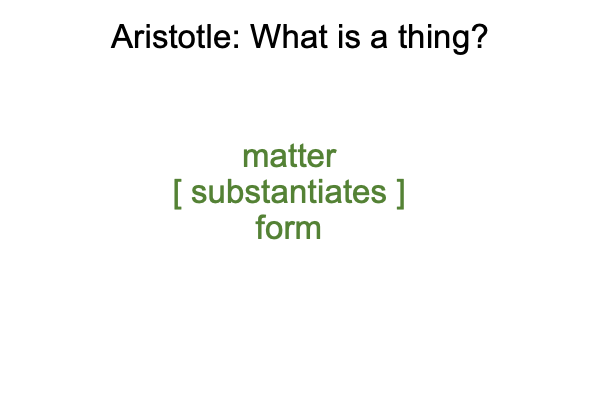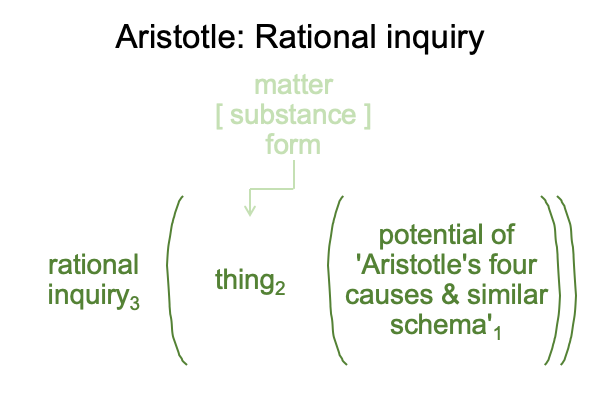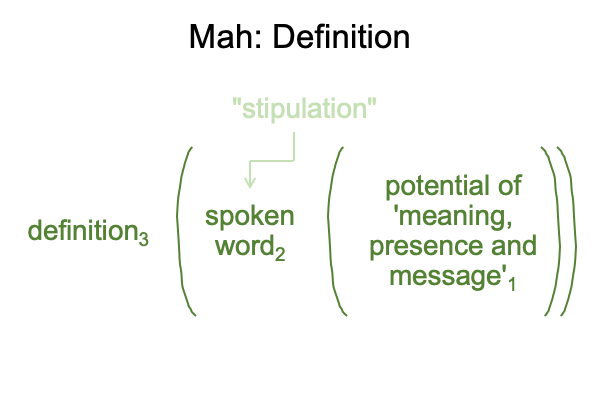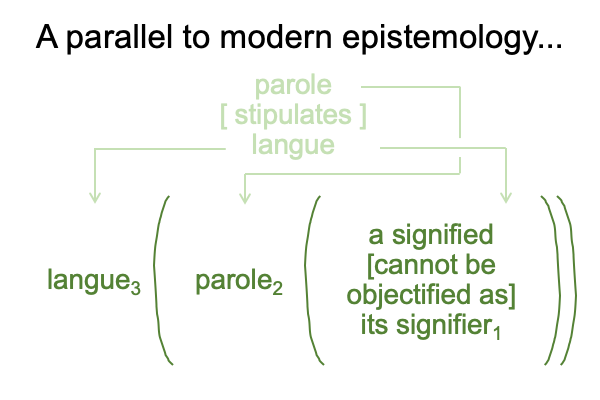0011 Idealism looks for something2 that it can turn into an object2 or an empirio-schematic judgment2.
What about realism?
0012 In Aristotle’s hylomorphe, matter and form are real elements and the contiguity is called “substance” (a technical use that may or may not cohere with traditional definitions of the word). Here is a picture.

0013 I suppose Aristotle’s philosophy is realist.
So, let me see what happens to the hylomorphe when it is tossed into an appropriate category-based nested form.

Okay. That is a little disappointing. I thought I would have arrows going in every direction, as in the first blog.
0014 Let me try another. “Stipulation” is a spoken word. How does the spoken word, “stipulation” pan out as an actuality, according to Razie Mah in How To Define The Word “Religion”?

Another disappointment with realism.
0015 Well, what if I go one step further and remind myself that, according the linguist, Ferdinand de Saussure (1857-1913 AD), spoken language consists of two arbitrarily related systems of differences, parole and langue. Parole is “talk”. Langue is “language” (or whatever is going on in one’s head during conversation).
According to Saussure, for spoken words, parole [stipulates] langue2.
Now, I have another example of the idealist approach, with a parallel to modern epistemology.

